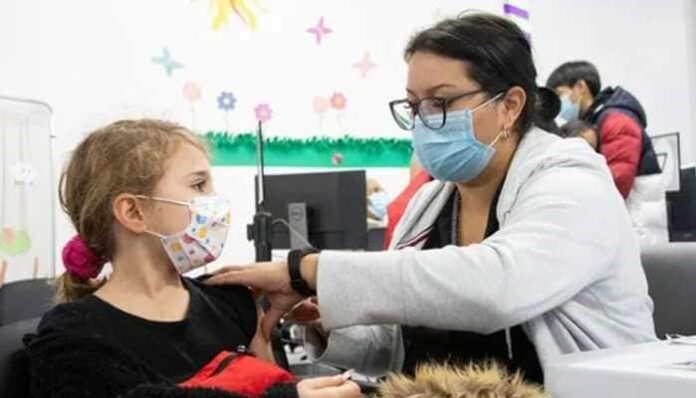| Translate This News In |
|---|
Scientists in Gauteng, South Africa’s most populous province, have discovered a new strain of the coronavirus that they believe is responsible for a recent surge in COVID-19 cases. It’s unknown when the new form first appeared, but experts in South Africa recently alerted the World Health Organization, and it’s already been identified in tourists arriving in a number of nations, including Australia, Israel, and the Netherlands.
The WHO named it “omicron,” after a letter in the Greek alphabet, as a “variant of concern” on Friday.
OMICRON: HOW MUCH DO WE KNOW ABOUT IT?
The variant was related to a “exponential surge” in instances in recent days, according to South African Health Minister Joe Phaahla. From little over 200 new confirmed cases per day in recent weeks, the number of new cases each day in South Africa increased to over 3,200 on Saturday, with the majority of them occurring in Gauteng.
Scientists investigated virus samples to find the new variety after struggling to explain the unexpected surge in instances. According to Tulio de Oliveira, director of the KwaZulu-Natal Research Innovation and Sequencing Platform, it is now responsible for as many as 90% of new cases in Gauteng.
WHY ARE RESEARCHERS CONCERNED ABOUT THIS NEW VARIANT?
The WHO warned that “preliminary evidence indicated an increased risk of reinfection with this variant” in comparison to other variants after convening a committee of specialists to examine the data.
This suggests that those who have recovered from COVID-19 may be at risk of contracting the virus again.
The coronavirus’ spike protein looks to contain a lot of mutations — roughly 30 — which could alter how easy it spreads to people.
The data thus far suggest the novel variety has alterations “associated with improved transmissibility,” but “the significance of many of the mutations is yet unknown,” according to Sharon Peacock, who led genetic sequencing of COVID-19 in the United Kingdom at the University of Cambridge.
Omicron, according to Lawrence Young, a virologist at the University of Warwick, is “the most severely mutated strain of the virus we have encountered,” with potentially dangerous mutations never observed in the same virus before.
WHAT WE KNOW ABOUT THE VARIANT AND WHAT WE DON’T KNOW
Scientists know that omicron differs genetically from prior variations like beta and delta, but they don’t know if these differences make it more transmissible or harmful. There is no evidence that the variation causes more severe disease thus far.
It will take weeks to determine whether omicron is more contagious and whether vaccinations are still effective against it.
Current vaccines are “very unlikely” to fail, according to Peter Openshaw, a professor of experimental medicine at Imperial College London, who noted that they are effective against a variety of different variations.
Even while some of the omicron genetic modifications appear to be concerning, it is yet unknown whether they will constitute a public health risk. Previous varieties, such as the beta, concerned scientists at first but did not spread very far.
“We don’t know if this new type will gain a foothold in delta-infested areas,” Peacock of the University of Cambridge remarked.
“Where there are other varieties circulating, the jury is out on how well this variety will do.” Delta is the most common variant of COVID-19 to date, accounting for over 99 percent of sequences submitted to the world’s largest public database.
WHAT CAUSED THE APPEARANCE OF THIS NEW VARIANT?
As the coronavirus spreads, it mutates, and many new varieties, even ones with potentially dangerous genetic modifications, often die out. COVID-19 sequences are being monitored for alterations that could make the disease more transmissible or lethal, but scientists can’t tell just by looking at the virus.
The variant “may have evolved in someone who was infected but could not clear the virus, allowing the virus to genetically evolve,” according to Peacock, in a scenario similar to how experts believe the alpha variant — which was first identified in England — emerged, by mutating in an immune-compromised person.
ARE SOME COUNTRIES’ TRAVEL RESTRICTIONS REASONABLE?
Foreigners are not allowed to enter Israel, and all international flights into Morocco have been suspended.
WHO’s regional director for Africa, Dr Matshidiso Moeti, praised South Africa and Botswana for immediately alerting the globe to the new type.
“With the omicron version now found in numerous parts of the world, imposing travel prohibitions that specifically target Africa is an attack on global unity,” Moeti added. “COVID-19 takes advantage of our weaknesses all of the time. Only by collaborating on solutions will we be able to defeat the virus.”


















